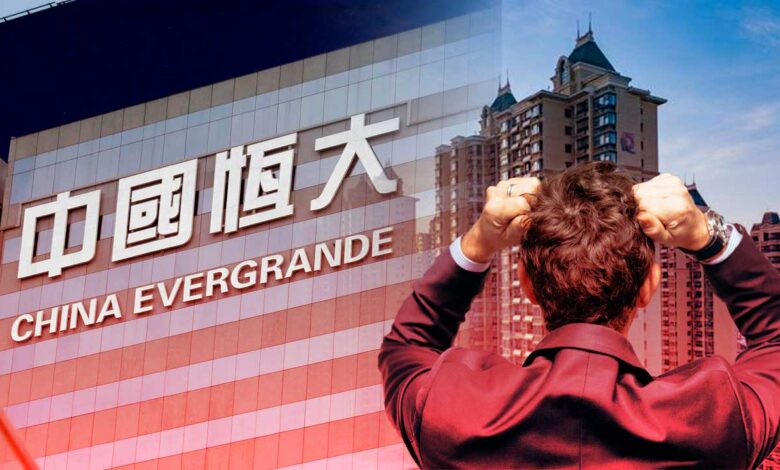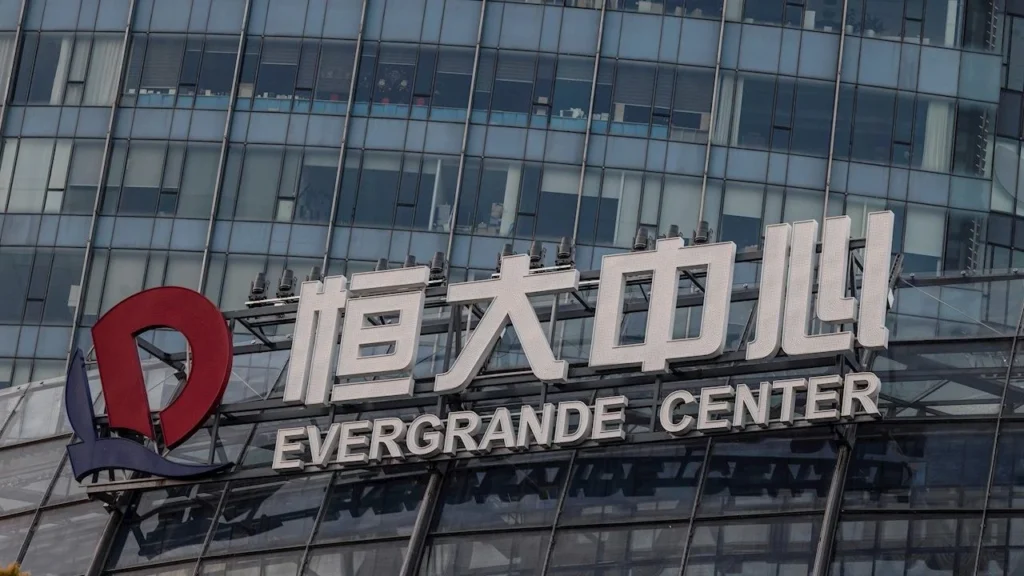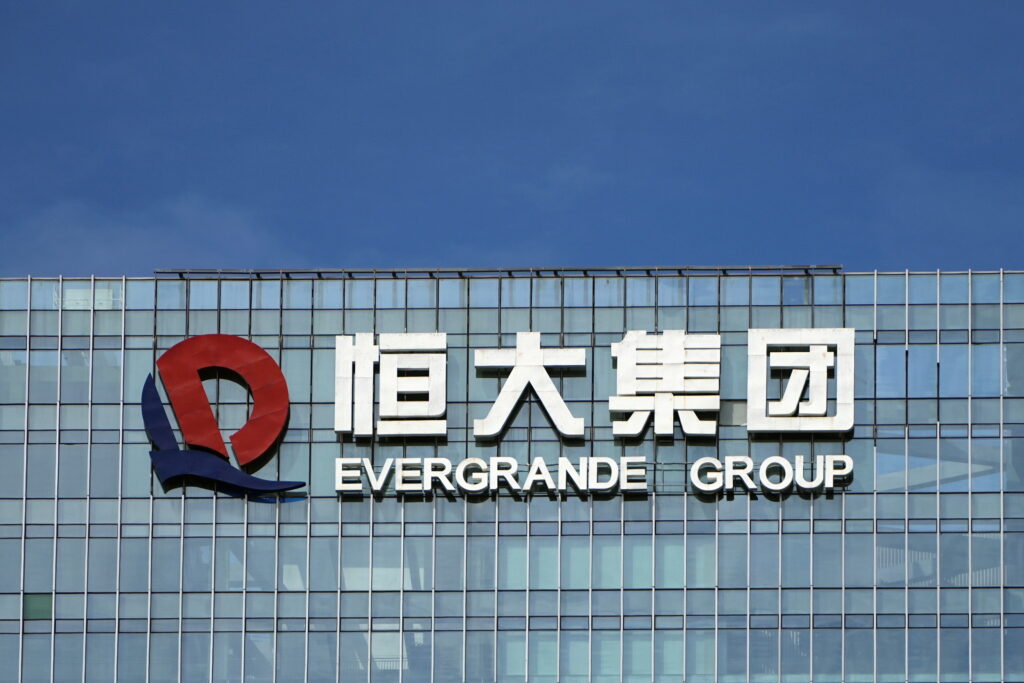https://finanzasdomesticas.com/crisis-de-deuda-evergrande-china

The is making headlines around the world. Evergrande, one of China’s biggest property developers, is in big trouble because it can’t pay its huge debts. This problem is affecting many people and businesses, not just in China but everywhere.
Evergrande has more than $328 billion in debt. That’s a lot of money! The company has tried to find a way to solve this problem, but things aren’t looking good. Now, a court has decided that Evergrande needs to be liquidated, which means selling everything it owns to pay off its debts. This is a big deal and could have major impacts on the economy.
What is the Crisis-de-deuda-Evergrande-China?
The is a big problem. Evergrande, a huge property company in China, owes a lot of money. They can’t pay back their debts. This situation is causing many worries in China and around the world.
Evergrande owes over $328 billion. That is a very big amount. The company has been trying to find ways to solve this debt problem. But so far, they haven’t been successful. This is why the is so serious.
A court in Hong Kong decided Evergrande must be liquidated. This means selling all its things to pay back the debts. The decision affects many people, from workers to investors. Everyone is watching closely to see what will happen next.

How Did the Crisis-de-deuda-Evergrande-China Start?
The started when the company couldn’t pay its debts. In late 2021, Evergrande failed to meet its financial obligations. This failure triggered a big crisis in the property sector.
Evergrande borrowed too much money to build many buildings. When they couldn’t sell the buildings fast enough, they couldn’t pay back the loans. This created a big financial problem. The became a symbol of risky borrowing and spending.
Government policies also played a role. China’s government tried to control the housing market with strict rules. These rules made it harder for companies like Evergrande to operate. This added to the.
The Impact of the Crisis-de-deuda-Evergrande-China on People
The affects many people. Workers at Evergrande worry about losing their jobs. Families who bought homes from Evergrande fear they might not get their houses. Investors who put money in Evergrande might lose their investments.
Small businesses connected to Evergrande are also hurt. These businesses include suppliers and contractors. They rely on Evergrande for work and payments. The has put their future at risk.
Even people outside China are affected. Evergrande’s problems have caused stock markets to drop. Investors around the world are nervous. The shows how connected the global economy is.
Why Evergrande’s Debt is So Big
Evergrande’s debt is huge because they borrowed a lot of money. They needed funds to build many properties quickly. The company believed they could sell these properties fast and make a profit. But things didn’t go as planned.
The company also bought land at high prices. This added to their expenses. When they couldn’t sell the properties quickly, their debt grew. The shows the danger of borrowing too much.
Evergrande also promised high returns to investors. To keep these promises, they needed more money. They kept borrowing to pay off old debts. This cycle made their financial situation worse. The is a result of this risky strategy.
What Happens During Liquidation in the Crisis-de-deuda-Evergrande-China?
During liquidation, Evergrande’s assets are sold to pay off debts. This is a key part of the. The court appoints a liquidator to manage this process. The liquidator will sell Evergrande’s properties and other assets.
Workers and suppliers might not get paid immediately. The money from selling assets will go to creditors first. This can take a long time. The means many people must wait for their money.
Homebuyers are also affected. They might not get their homes if the projects are unfinished. The liquidator will decide how to handle these projects. The creates uncertainty for many families.
The Role of Foreign Creditors in the Crisis-de-deuda-Evergrande-China
Foreign creditors play a big role in the. These are investors from other countries who lent money to Evergrande. They are worried about getting their money back. The affects their investments.
Foreign creditors tried to work out a deal with Evergrande. They wanted to restructure the debt. But they couldn’t agree on the terms. This led to the decision to liquidate the company. The shows how international finance is involved.
The involvement of foreign creditors makes the situation more complex. They have legal rights and financial interests. The liquidator must consider these when selling Evergrande’s assets. The impacts people far beyond China.
How the Chinese Government is Handling the Crisis-de-deuda-Evergrande-China
The Chinese government is taking steps to manage the They want to prevent the situation from hurting the whole economy. The government has set up teams to monitor and control the impact.
Officials are trying to help complete unfinished housing projects. They want to protect homebuyers and maintain social stability. The is a test for the government’s ability to handle big financial problems.
The government is also encouraging other property companies to be more careful with their debts. They want to avoid another. This means stricter rules and oversight for the property sector.
The Arrest of Evergrande’s Chairman: Crisis-de-deuda-Evergrande-China
The took a dramatic turn when Evergrande’s chairman, Xu Jiayin, was arrested. He was accused of crimes related to the company’s financial troubles. His arrest shows how serious the situation is.
Xu Jiayin was a key figure in Evergrande’s rise and fall. He made many big decisions for the company. His leadership is now under scrutiny. The highlights the risks of high-level management.
The arrest has impacted Evergrande’s ability to negotiate with creditors. It has created more uncertainty. The continues to unfold with many people watching closely.
The Future of China’s Property Market After the Crisis-de-deuda-Evergrande-China
The will shape the future of China’s property market. The government is likely to introduce new regulations. These will aim to prevent another crisis like this from happening.
Property companies will need to be more careful with their finances. They might borrow less and focus more on completing projects. The has been a big lesson for the industry.
Homebuyers might also change their behavior. They could be more cautious when choosing developers. The has made people aware of the risks involved in the property market.
Lessons Learned from the Crisis-de-deuda-Evergrande-China
The teaches important lessons. One lesson is the danger of borrowing too much money. Companies need to manage their debts carefully to avoid similar problems.
Another lesson is the importance of government oversight. The crisis-de-deuda-Evergrande-China shows that strict rules are needed to keep the market stable. Both companies and regulators need to work together.
Investors have also learned to be cautious. The crisis-de-deuda-Evergrande-China reminds everyone that high returns come with high risks. Diversifying investments and doing thorough research is crucial.
What Could Have Prevented the Crisis-de-deuda-Evergrande-China?
Several things could have prevented the crisis-de-deuda-Evergrande-China. First, Evergrande could have borrowed less money. This would have reduced their financial pressure and risk of default.
Better planning and management might have helped too. If Evergrande had managed its projects more carefully, the crisis-de-deuda-Evergrande-China might not have happened. They needed to balance their spending and income better.
Government policies could have been stricter earlier. If the government had enforced stricter borrowing rules sooner, the crisis-de-deuda-Evergrande-China might have been avoided. Early intervention is key to preventing such crises.
Comparing the Crisis-de-deuda-Evergrande-China to Other Debt Crises
The crisis-de-deuda-Evergrande-China is similar to other debt crises in many ways. Like the 2008 financial crisis in the US, it involves a lot of borrowing and risky investments. Both crises show the dangers of financial mismanagement.
However, there are differences too. The crisis-de-deuda-Evergrande-China is more about property, while the 2008 crisis was about mortgages. The scale of Evergrande’s debt is also much bigger. Each crisis has unique factors.
Learning from past crises can help prevent future ones. The crisis-de-deuda-Evergrande-China reminds us to study history. Understanding what went wrong can guide better decisions in the future.
The Role of Investors in the Crisis-de-deuda-Evergrande-China
Investors played a big role in the crisis-de-deuda-Evergrande-China. Many people and companies invested in Evergrande hoping to get high returns. This investment gave Evergrande the money to grow quickly.
When Evergrande couldn’t pay back its debts, these investors were hit hard. They lost a lot of money. The crisis-de-deuda-Evergrande-China shows the risks of investing in companies with high debts.
Investors are now more cautious. They are looking closely at a company’s finances before investing. The crisis-de-deuda-Evergrande-China has changed how people think about investment risks.
How the Crisis-de-deuda-Evergrande-China Affects Global Markets
The crisis-de-deuda-Evergrande-China has a big impact on global markets. Evergrande’s problems caused stock prices to drop around the world. Investors are worried about the ripple effects of the crisis.
Many international companies are connected to Evergrande. They supply materials or have financial ties. The crisis-de-deuda-Evergrande-China affects these companies too. This shows how interconnected the global economy is.
Central banks and financial regulators are keeping a close watch. They want to prevent the crisis-de-deuda-Evergrande-China from causing bigger problems. The situation is a reminder of the need for global cooperation.
The Human Side of the Crisis-de-deuda-Evergrande-China
The crisis-de-deuda-Evergrande-China is not just about money. It’s about people too. Many workers at Evergrande are worried about their jobs. They don’t know if they will be paid or if they will have work tomorrow.
Homebuyers are also suffering. Some have paid for homes that are not finished. They are afraid they might lose their money. The crisis-de-deuda-Evergrande-China has caused a lot of stress and uncertainty.
Communities are affected too. Evergrande’s unfinished projects leave empty buildings and neighborhoods. This impacts local economies and daily life. The crisis-de-deuda-Evergrande-China is a human story as much as a financial one.
What Small Businesses Can Learn from the Crisis-de-deuda-Evergrande-China
Small businesses can learn a lot from the crisis-de-deuda-Evergrande-China. One lesson is the importance of managing debt carefully. Borrowing too much can lead to big problems.
Another lesson is to plan for the long term. Small businesses should balance their spending and income. The crisis-de-deuda-Evergrande-China shows what happens when companies don’t plan properly.
Building good relationships with customers and suppliers is also key. Small businesses should communicate openly and honestly. The crisis-de-deuda-Evergrande-China highlights the need for trust and transparency in business.
The Environmental Impact of the Crisis-de-deuda-Evergrande-China
The crisis-de-deuda-Evergrande-China also has an environmental impact. Unfinished buildings and abandoned projects can harm the environment. They can become eyesores and waste valuable land.
Construction itself has environmental costs. The materials and energy used to build properties leave a carbon footprint. The crisis-de-deuda-Evergrande-China shows the need for sustainable building practices.
Reusing and recycling materials can help. Finishing projects in an eco-friendly way is important. The crisis-de-deuda-Evergrande-China is a reminder to think about the environment in business decisions.
Predicting the Next Steps in the Crisis-de-deuda-Evergrande-China
Predicting the future of the crisis-de-deuda-Evergrande-China is difficult. The liquidation process will take time. Many factors will influence what happens next.
The court-appointed liquidator will play a big role. They will decide how to sell Evergrande’s assets. The crisis-de-deuda-Evergrande-China depends on these decisions.
Government actions are also crucial. Officials will try to manage the impact on the economy. The crisis-de-deuda-Evergrande-China will continue to evolve. Watching these developments is important for understanding the future.
How the Crisis-de-deuda-Evergrande-China is Covered in Media
The crisis-de-deuda-Evergrande-China is a major news story. Media around the world are reporting on it. Different media outlets focus on different aspects of the crisis.
Some stories highlight the financial impact. Others focus on the human side. The crisis-de-deuda-Evergrande-China is complex and affects many people. Media coverage helps the public understand what’s happening.
Social media also plays a role. People share news and opinions online. The crisis-de-deuda-Evergrande-China is a topic of discussion everywhere. This shows the power of media in shaping public perception.

Conclusion
The crisis-de-deuda-Evergrande-China is a big deal. It shows what can happen when a company borrows too much money and can’t pay it back. Many people, from workers to investors, are affected. This crisis reminds us to be careful with money and plan well. We can learn a lot from what happened to Evergrande.
Looking ahead, we need to watch how the situation unfolds. The Chinese government and the liquidator have important jobs to do. They need to manage the impact and help those affected. The crisis-de-deuda-Evergrande-China is a lesson for everyone about the importance of good financial management and making smart decisions.




